The King is Dead. Long Live the King!
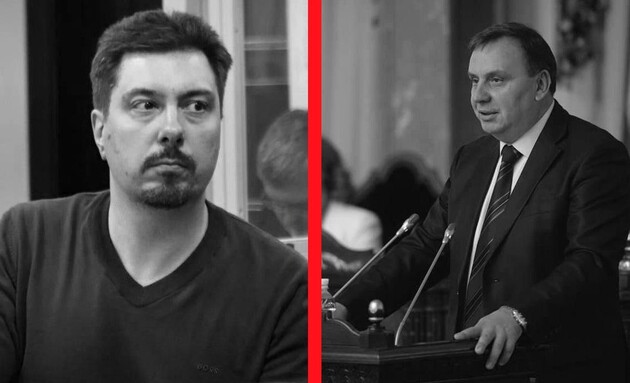
The rapid election of the new head of the Supreme Court took place against the background of a conspiracy of elites. For ten days in a row, everyone – the president, the government, the parliament, party leaders and heads of factions – kept silence about the bribe of almost three million (!) dollars and the arrest of the head of the Supreme Court (!) Knyazev. And only after Friday’s vote for the new head of the Supreme Court, when the arrangement of figures within the Supreme Court became clear, the Verkhovna Rada immediately registered a resolution “On the necessity of tough and uncompromising overcoming of corruption in the justice system.” A move with a marked king.
While our thoroughgoing deputies are breaking a lance over how Bankova (the presidential office) will “optimize the judicial system of Ukraine in accordance with the challenges and requirements of the real situation,” we can already state that:
— firstly, the newly elected head of the Supreme Court, Stanislav Kravchenko, like Knyazev, is a compromising and agreed-upon figure both in the Supreme Court itself and in power and political circles. The so-called Old Guard stands firm to the end, and the small bites of National Anti-Corruption Bureau of Ukraine heal quickly enough;
— secondly, the strategy of competitions and selections failed, no matter how many international experts there were and no matter how strict the conditions were for the candidates. The public sector will have to recognize that the one-size-fits-all solution has failed – and not just in the judiciary – and develop a brand-new strategy to defend reforms;
— thirdly, the main attention is the High Council of Justice (the HCJ), which should soon approve the composition of the High Qualification Commission of Judges (the HQCJ). The possibility/willingness of the HCJ to take the lead in changing the judicial system and give a chance to the HQCJ to renew itself is the main issue of the nearest agenda;
— fourthly, the anti-corruption bloc has become almost the only pillar of healthy forces in the country. Only the reliability of the chain “National Agency for Prevention of Corruption – National Anti-Corruption Bureau of Ukraine – Specialized Anti-Corruption Prosecutor’s Office – High Anti-Corruption Court of Ukraine” can pull us out of the abyss into which we have fallen. But if this bloc doesn’t manage to resist either – and the new director of the National Anti-Corruption Bureau of Ukraine Semen Kryvonos has not yet chosen his party – we will have much more work than we expected. Both now and after the Victory.
Your not-Honor
If Knyazev’s Telegram channel with the prophetic name Your not-Honor “died” on the day of the owner’s arrest, the public silence of the authorities did not exclude active secret work. As already reported by ZN.UA, the specialized parliamentary committee insisted on the prompt election of a new chairman. In particular, our sources in the parliament shared that Acting Chairman of the Supreme Court, Dmytro Luspenyk, spent more than three hours at a committee meeting a week before the plenum, where he was strongly advised not to delay the election of a new chairman, because “someone has to run all this.”
Among the candidates were the head of the Competition Commission for the selection of members of the HQCJ, judge of the Commercial Cassation Court of the Supreme Court Ivan Mishchenko (14 votes “for”), judge of the Administrative Cassation Court of the Supreme Court Albert Yezerov (2 votes “for”), judge of the Administrative Cassation Court of the Supreme Court Nataliya Kovalenko (13 votes “for”). Stanislav Kravchenko, the head of the Criminal Cassation Court of the Supreme Court, until the last moment did not reveal his participating in the elections. Eventually, he became the chairman of the Supreme Court (108 votes). Kravchenko has a wealth of experience behind him: a negative conclusion of the Public Integrity Council (PIC) in 2017, when he applied for the position of Supreme Court judge; court decisions that were the subject of consideration by the ECtHR and which he concealed; problems with declaring a hectare of land in Kozelets; the decision to “change Pukach’s detention to a recognizance not to leave, which gave him the opportunity to hide until July 2009,” as Roman Maselko, a current member of the HCJ, openly wrote about in that same year.
It is important to clarify here that the Supreme Court is quite heterogeneous. According to our sources, three days before the arrest of Supreme Court Chairman Knyazev and lawyer-mediator Horetskyi for bribery, several judges of the Supreme Court met with American partners related to judicial reform. While the National Anti-Corruption Bureau of Ukraine had Knyazev from the outside, using as an agent the friend and personal notary of the head of the Supreme Court, Kyrylo Horburov, the judges of the Supreme Court were drawing their own picture of what was happening inside. However, in the elections, the progressive wing of the Supreme Court remained in a critical minority.
Despite the fact that on the eve of the vote, the information space was covered by a wave of indignation regarding Kravchenko’s so-called decency, as well as his pre-election promises of apartments for judges at the expense of the state, the Supreme Court made its choice. And, not having recovered from the blow, that Knyazev struck to its reputation and legitimacy, the Court fell politically.
“The mood music inside the Supreme Court has always been influenced by the heads of the four courts of cassation of the Supreme Court, says our source in the Supreme Court. A few days before the vote, there was a Zoom conference, where the judges discussed the date of the plenum and the possible reform of the Grand Chamber of the Supreme Court. It was not by chance that Maslov, the head of the specialized parliamentary committee, included in his resolution a clause on the optimization of the judicial system. Bankova can easily restart the Grand Chamber under the guise of changes that are overdue. Currently there are 21 judges, after the reboot there may be 10–15. Among them will be judges according to the quotas of heads of cassation. The fewer people there are, the easier it is to control. Why is this so important? Well, because in the Great Chamber of the Supreme Court they are appealing the decision of the High Council of Justice regarding bringing judges to disciplinary responsibility. The controlled Grand Chamber is also a noose on the neck of the HCJ, which dismisses delinquent judges from the system. It is here, in the Great Chamber, that appeals are heard in all cases concerning the president, the parliament, the High Council of Judges, and the High Qualification Commission of Judges.
In addition, a new qualification assessment and integrity check of the entire Supreme Court may be announced (under the guise of justice), which will allow up to 100 new people to be brought to the Supreme Court. Currently, the Supreme Court has 167 judges with a staff of 200. Up to 100 judges may go on a well-paid pension in case of inspections. Someone will be weeded out after the inspections. Although this is pure venture, which purely technically can block the work of the Supreme Court for years,” our source shared with us.
However, the necessary draft law will definitely not get stuck hidden by Maslov for two years. As once upon a time, a presidential (!) project regarding the liquidation of Kyiv District Administrative Court got stuck hidden by the current Prosecutor General Kostin. Especially since the text of the aforementioned resolution of the Verkhovna Rada appeals directly to the National Security and Defense Council chaired by the president. For Zelenskyy, this could be a great opportunity to effectively take responsibility for the judicial reform from the civil sector shocking international partners – as well as take revenge for the failure of 2019, when they did not let him reboot the Supreme Court.
The failure of competitions and a blow to the Public Integrity Council
Knyazev brilliantly passed the competition for the Administrative Cassation Court of the Supreme Court in 2017. The speaker on Knyazev’s candidacy was Andriy Kozlov, who was supported by public organizations and who was one of the most scrupulous and merciless members of the HQCJ. Knyazev, a judge from Mykolaiv, a Doctor of Law, and a lawyer in the past, who speaks fluent English, became the third in the ranking out of 55 selected judges. How could it happen that a smart, well-educated, intelligent judge, who at the time of the competition lived together with his wife’s parents in a two-room apartment, managed to become the head of the Supreme Court, whom his colleagues sincerely applauded and who shook hands with partners in the USA, EU, and Great Britain, – turned out to be a terribly corrupt official? Where does this jargon in the style of an experienced tradesman (almost using prison slang) in published conversations with henchmen come from? Why did the competition, in which the public took an active part, not guarantee the purity of the result?
On the day of the interview with the newcomer Knyazev (8:20 a.m.—9:15 a.m.), the HQCJ also blocked the winner of the mantle of the Supreme Court, Pavlo Vovk, head of the Kyiv District Administrative Court. By the way, his telegram channel also has a prophetic name – “Under the Mantle.” Still, this is not the only signal of the universe. The Public Integrity Council was lenient towards candidate Knyazev and limited itself: it did not come up with a negative conclusion, but furnished information about some disputes regarding his property, as well as politically incorrect statements of the future head of the Supreme Council.
At that time, according to the law, the HQCJ could disregard the conclusion of the Public Integrity Council, which, according to public organizations, made it possible to form the Supreme Court from people from the old system. This was partially confirmed by the vote of the Supreme Court for the conservative Kravchenko. Ironically, on the day of the interview with Knyazev, Serhii Verlanov represented the Public Integrity Council. Verlanov is the same future head of the State Tax Service, whom National Anti-Corruption Bureau declared wanted in January 2021. According to the investigation, the official suspect of abuse of office “cancelled” the replenishment of the state budget by more than two billion hryvnias for a kickback. I have no comments. Only questions.
Why is there no 100-percent confidence in the new composition of the HCJ today, although all its members have been carefully checked by the reformed Ethics Council? Why involuntarily appears at the same time the image of the head of the Ethics Council, Judge Lev Kyshakevych, a friend of Knyazev, who in May joined the Grand Chamber of the Supreme Court? For what merits? I’ve got no idea. The National Anti-Corruption Bureau has not yet raised suspicions against other judges who took money for a legal (!) decision in favor of Zhyvago.
Why did we feel disappointed after the competition for the position of the National Anti-Corruption Bureau director, when the presence of Semen Kryvonos on the list at the very start indicated him as a future winner capable of pleasing the president’s office? Wow, what an intuition we have! And the competition commission included the famous international expert Drago Kos, who fought to the death for the future head of the Specialized Anti-Corruption Prosecutor’s Office Oleksandr Klymenko. However, for some reason he did not confront the final three with the obvious favorite Kryvonos.
“It can be concluded that even international experts and their overwhelming right to vote are not a panacea for ensuring a completely objective result. This is also confirmed by the selection to the High Council of Justice. The listed errors should be considered when modeling the following procedures,” Olena Shcherban, an analyst of the Anti-Corruption Action Center (AntAC), honestly wrote in hot pursuit of the National Anti-Corruption Bureau competition.
Competition procedures are overregulated and not unified, each new selection turns into a kind of competition of the strictness of the conditions with the previous one. As a result, we become participants in the absurdity, when today we applaud the competition commission, which successfully identified the 32 best candidates for the HQCJ, and tomorrow we publish a list of “undesirables” from these 32, who “under no circumstances can be appointed to the HQCJ.” How did they get on the list, if they were selected by a commission with the participation of impeccably reputable international experts?
It is already obvious that the path of endless checks of candidates for the judicial, law enforcement, and anti-corruption systems at the start does not guarantee a lasting result. Participation in the selection process of internationals and the public does not ensure it. The organism of the system has diabolically caustic gastric juice, which instantly dissolves “strangers,” turning them into “close people.” Not everyone is able to hear the voice of conscience, which can become a savior in this situation.
Test for the High Council of Justice and the entire system
It is difficult to overestimate the scale of the challenges facing the judicial system, which is experiencing a real disaster today. After removing the scabies of Yanukovych’s “obschak” times (dirty shared money game), the lengthy liquidation by two (!) presidents of the Kyiv District Administrative octopus with its influence on the political system of the state, Knyazev’s case may not seem so large-scale. But this is only at first glance.
Two months after Knyazev became the head of the Supreme Court, ten members of the High Council of Justice resigned. The activity of the council stopped for a year. Two days after the resignation of the members of the HCJ, a full-scale invasion began, and in March the parliament passed a law that transferred a number of powers of the HCJ to the head of the Supreme Court. These included one-person decision-making on the secondment of hundreds of judges from temporarily occupied territories to safer ones. For example, last spring, Knyazev transferred judge Svitlana Hrechana to Kyiv from the Mykolaiv court, where the jurisdiction was not changed due to the war, by a one-person decision in closed session. Later, the new judge of the Pechersk district court of the capital lifted the arrest from the Ocean Plaza shopping center, related to its sanctioned owners. According to the sources, this was done at the request of the head of the Servant of the People (Sluha Narodu) faction Davyd Arakhamia.
Thus, before the inclusion of the new composition of the HCJ, Knyazev concentrated in his hands virtually dictatorial public power in the judicial system. And, as it turned out, non-public too.
You can read and listen to information about Oleh Horetskyi and Knyazev’s back office at the Horetskyi & Partners law firm in National Anti-Corruption Bureau reports. We will cite two facts with which Supreme Court judges appealed to the international community on the eve of Knyazev’s exposure by the National Anti-Corruption Bureau.
First, in addition to controlling the Supreme Court and the Supreme Administrative Court, on April 20, 2022, Knyazev appointed his compatriot Oleksiy Salnikov as the head of the State Judicial Administration of Ukraine. This body is in charge of all finances, tenders, and purchases of the judicial system. We can only guess what Salnikov was talking about with Horetskyi near the Supreme Court literally three hours before the start of the National Anti-Corruption Bureau operation. But judging by how quickly and harshly the head of the State Judicial Administration condemned corruption in the system, Salnikov did not reveal any secrets to Horetskyi. Or he did, but nevertheless condemned.
Secondly, Knyazev invited Oleh Horetskyi to the March forum of heads of commercial courts of the country in Lviv. The lawyer was present not only at all closed working events of judges, but also at informal ones. He sat on Knyazev’s right hand, handed out business cards and, on the spot, “solved issues regarding some important matters.” Commercial courts are the entire business of the country. After the forum, the judges openly talked about the back office and the “special mission” of Vsevolod Knyazev in the reform of the judicial system of Ukraine. This was impossible under the former head of the Supreme Council Valentyna Danishevska.
The role and responsibility of HCJ in the current situation is global. As well as the questions that we have to some of its members. According to the testimony of the judges who were present at the forum in Lviv, Horetskyi came there not alone, but in the company of two members of the HCJ – experienced Oksana Blazhivska (appointed by the president’s quota) and inexperienced Yulia Bokova (elected by the congress of judges, who are still ruled by judicial clans). What’s the joke? Was the back-office in the Supreme Court and the reformed HCJ the same?
According to our information, in the current composition of the HCJ a group crystallized, the members of which communicated informally with Knyazev. And Horetskyi. Joint holidays, meetings in restaurants, etc. The last joint celebration was held in honor of the birthday of the Deputy Chairman of the High Council of Justice Dmytro Lukyanov. In addition to those already mentioned, Mykola Moroz (the parliamentary quota) and Olha Popikova (the quota of the Congress of Judges) are among the close ones. The head of the HCJ Hryhoriy Usyk was also in contact with Knyazev, but the status of both could play a role here. And it is possible that Usyk was thankful to Knyazev for the support obtained in the president’s office. So, conditional seven of the 17 active members of the HCJ were part of Knyazev’s environment.
Could they influence the strategy of HCJ as a whole? Of course. And to influence the outcome of the upcoming vote for members of the HQCJ? Certainly. However, according to our information, at the time of Knyazev’s arrest, the HCJ had not yet started discussing candidacies. On top of that, according to the official statement of the head of the Specialized Anti-Corruption Prosecutor’s Office Oleksandr Klymenko, the investigation (despite three pieces of paper with Knyazev’s markings leaked to the media) does not have evidence of real influence of the former head of the Supreme Council on the process of selection of candidates for members of the HQCJ.
Until the election of the new head of the Supreme Court, Stanislav Kravchenko, who has already become a member of the HCJ, the approval of the new composition of the Supreme Court was planned for Monday. However, Kravchenko can delay the process for some time. If he decides to take part in internal consultations on the selection of candidates, to which he already has a legal right. Public organizations, understanding the risks of delay, insist on the need to clarify the voting procedure. “In order to remove any insinuations against the background of Knyazev’s arrest, it is necessary to hold not only an open, but also a roll call vote,” they say there.
With all the ambiguity of the given facts, in the situation of the collapse of the Supreme Court (thanks to Knyazev’s efforts, the reputation of the Supreme Court in the eyes of citizens is practically zero, and its head has no trust), there is still a chance for the HCJ to assume leadership in the judicial system. Appoint members of the HQCJ and renew the judicial system. The presence of healthy forces in the HCJ, plus four unfilled vacancies and the necessary honest discussion internally can be the basis for this.
A new role of the anti-corruption block
After the Anti-Corruption Action Center scarcely achieved the competition for the head of the Specialized Anti-Corruption Prosecutor’s Office, the effectiveness of National Anti-Corruption Bureau and the entire anti-corruption bloc increased many times. There is a result. Without it, no contests, selections, and inspections make sense. The arrest of a Knyazev-sized figure, which came as a surprise to Bankova, is a clear signal to the authorities and elites: the law is watching you. Even if you work in the president’s office and all the key security forces of the country visit you for your birthday. Even if you are the Minister of Defense and you suddenly thought that your “eggs at UAH 17 per piece” are no longer in danger. Even if you were rewarded with a full life in fairy-tale Switzerland for the service rendered while in the office of the Prosecutor General... Even if you became the new head of the Supreme Court and decided that you would be covered at the very top. Knyazev also thought so.
It is not surprising that all the attention regarding the bribe of three million dollars for the head of the Supreme Court at the briefing of the anti-corruption bloc was focused on the director of National Anti-Corruption Bureau Semen Kryvonos. He reported on the biggest corruption case in the entire history of Ukraine. But this is not yet his merit. So far, Kryvonos has only stood next to a professional team. Still, let’s note, the information about the operation did not leak from him: he called the president not before, but immediately after its successful completion.
... Summing up, we note that even after the arrest of Knyazev, the Supreme Court did not fulfill its main anti-crisis task: to send a signal to society and international partners that the lesson was learned. Instead, the closed club of the elected hastily changed the owner (the Americans in informal communication say that the cooperation with the new head of the Supreme Council Kravchenko will have a formal character) and put another lock on the door. But “Akela missed,” giving the “green” light to the authorities, who, taking advantage of the opportunity, will first demolish the Grand Chamber and then clean the entire Supreme Court.
In this situation, the only hope is to launch the HQCJ, which will open the door to the system for two and a half thousand new judges creating a quality foundation at the most basic level, which will later make it possible to heal the top as well.
There is no hope for the real top-down judicial reform. While we fight for what separates us from Russia, our elites, with their wet tails between their legs, work to reinforce Russian values of lack of freedom and non-transparency in Ukraine. All who remained silent.
Read this article in Ukrainian and russian.
Please select it with the mouse and press Ctrl+Enter or Submit a bug










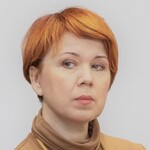
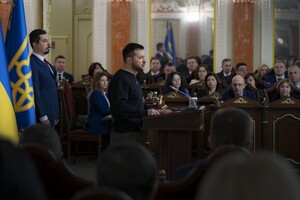
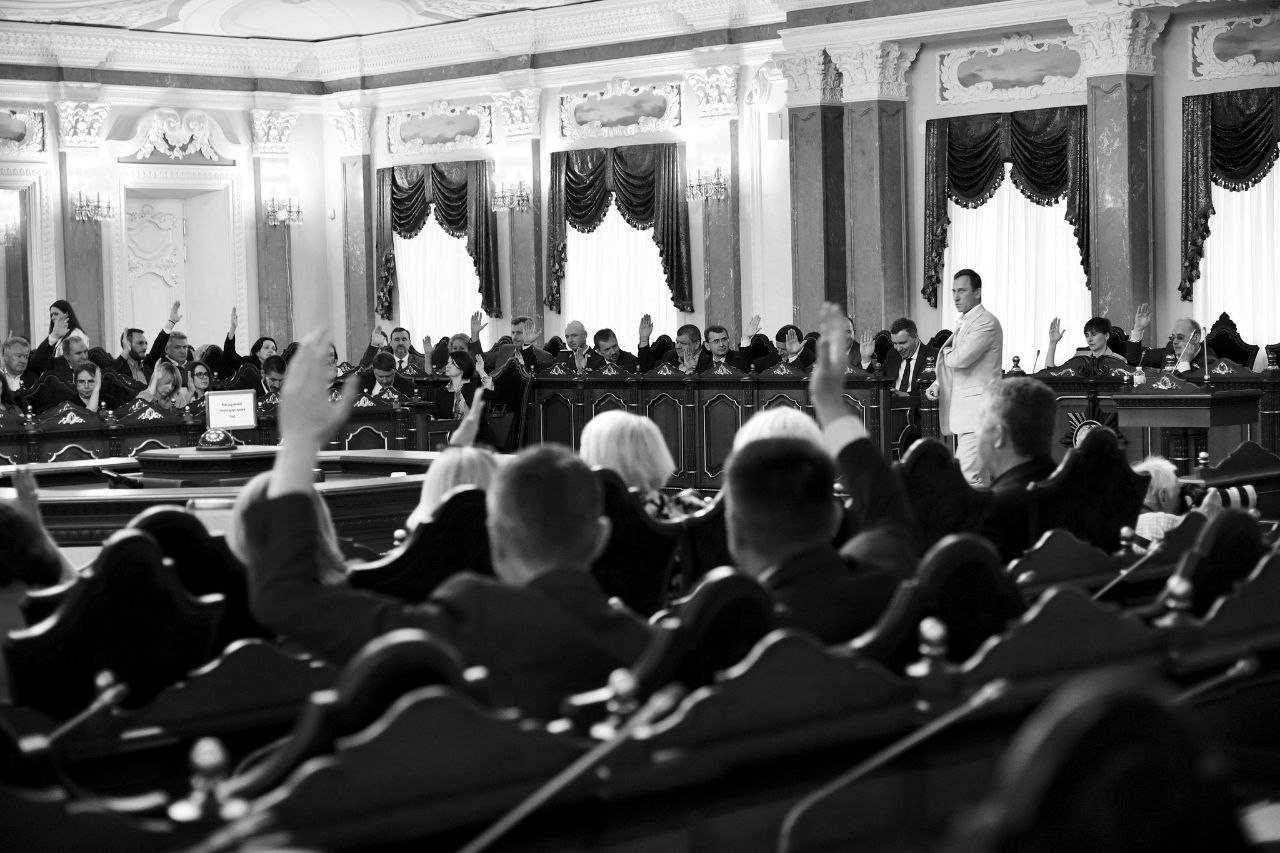
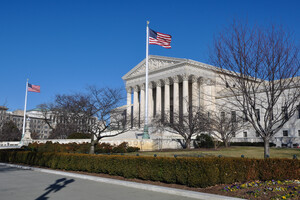
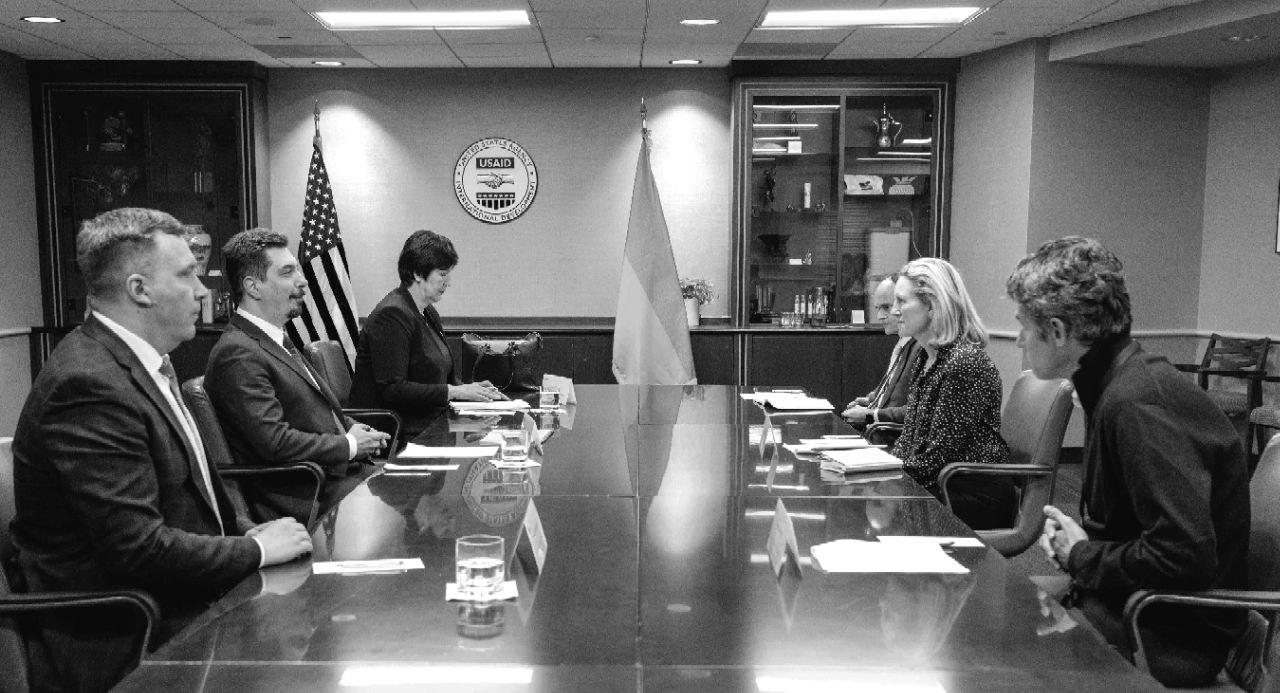

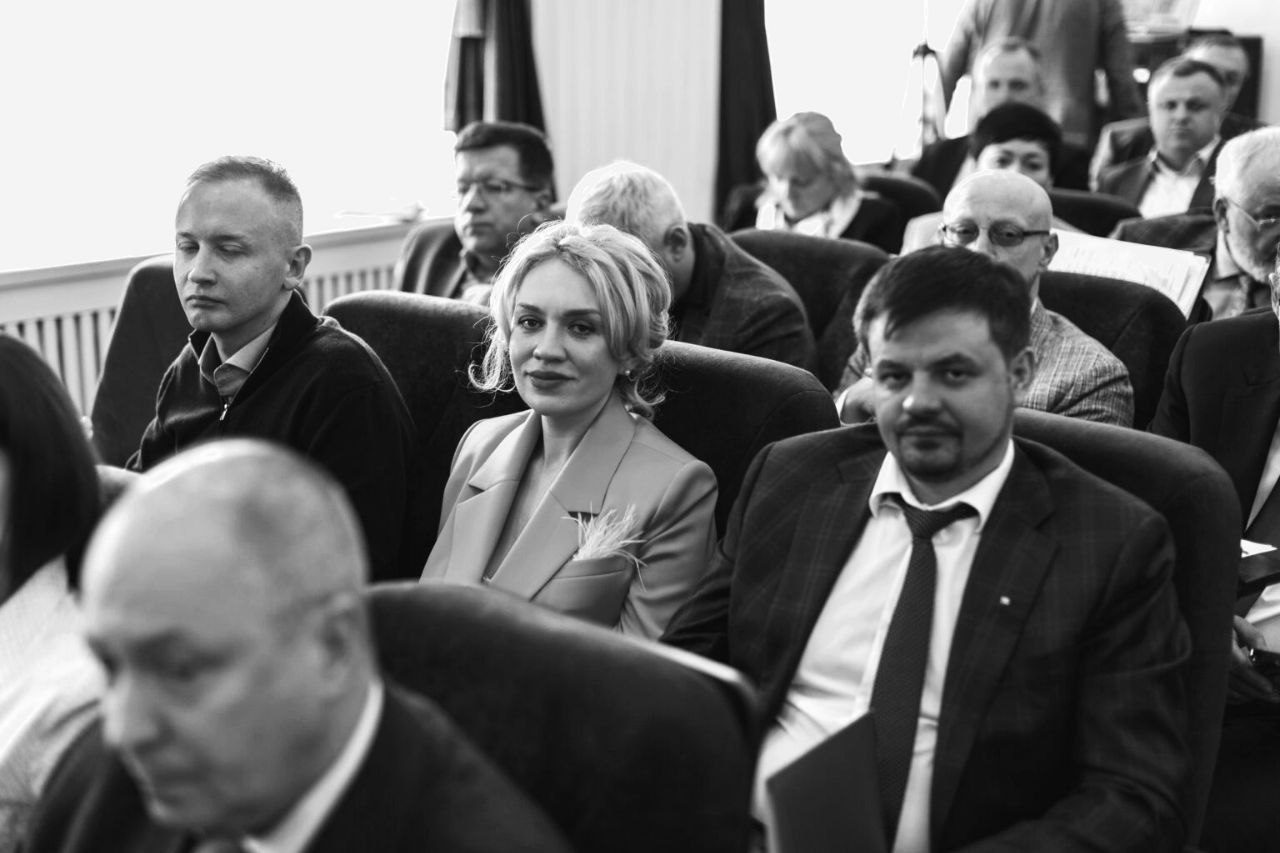
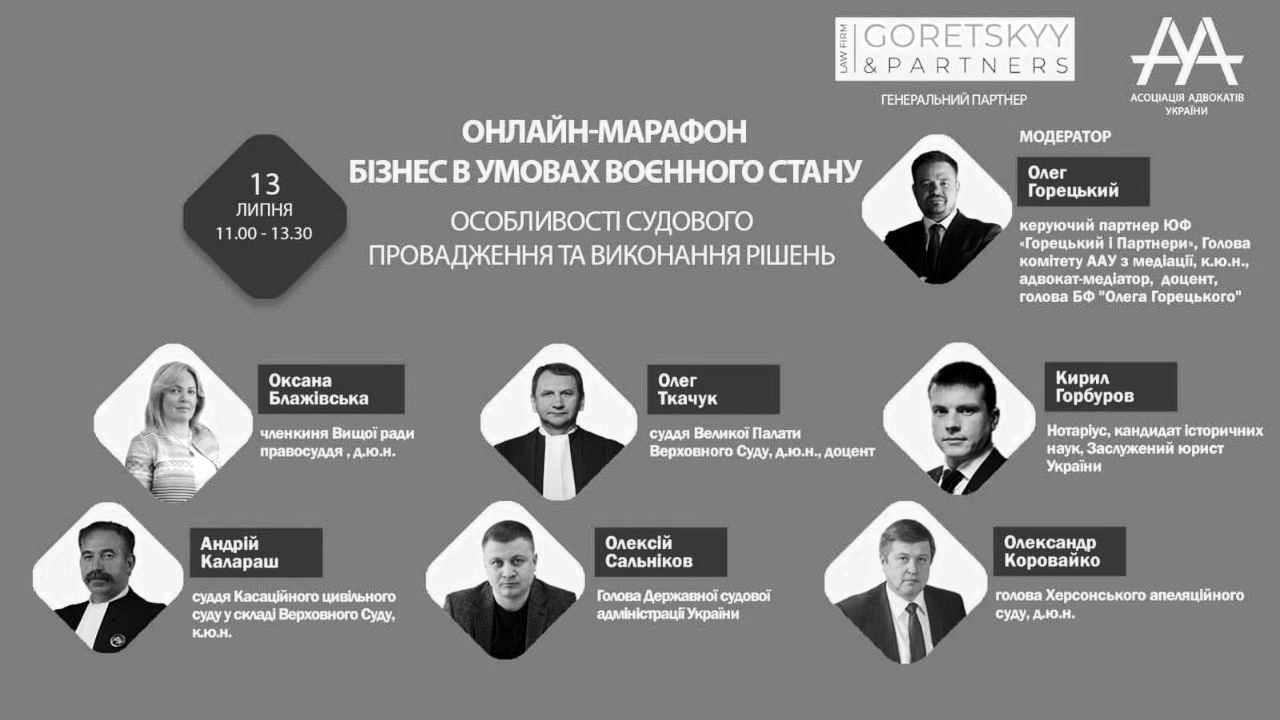
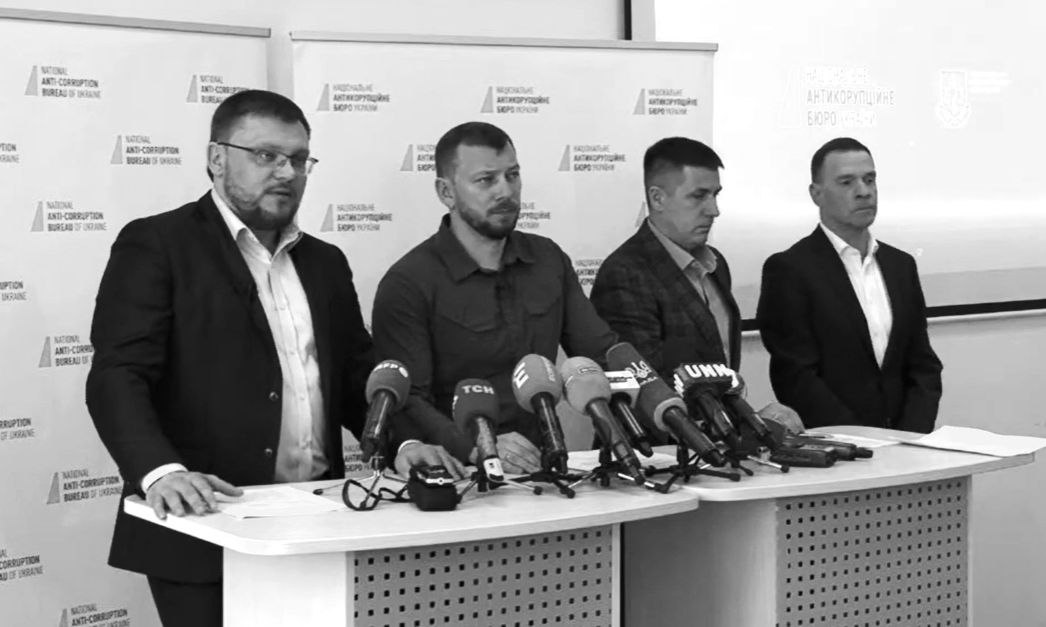
 Login with Google
Login with Google